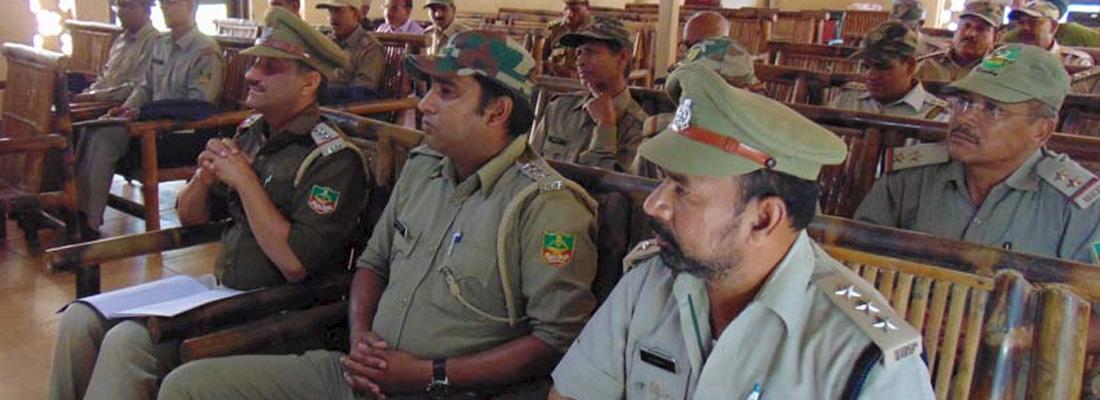Forestry officers trained in effective prosecution and conviction of wildlife crimes
Ramnagar, Uttarakhand, India, April 2018—earlier this month, frontline staff of Uttarakhand and Uttar Pradesh (UP) Forest Departments including range officers and forest guards underwent two days of rigorous training to strengthen their legal capacity for effective wildlife crime prosecution and conviction.
The two-day training workshop held on 9–10th April was organized by TRAFFIC in collaboration with the Uttarakhand Forest Department, WWF-India and LIFE (Legal Initiative for Forest and Environment).
It was the first time that a dedicated workshop on building legal capacity of frontline forest staff had been organized by TRAFFIC in India.
Forty-two participants from the Corbett Tiger Reserve, Kalagarh Tiger Reserve, Terai West Forest Division, Ramnagar Forest Division, Pilibhit Tiger Reserve (UP) and Amangarh Tiger Reserve (UP) attended the meeting to gain insights into illegal wildlife trade and the legal procedures to investigate and prosecute wildlife crime cases.
In India the extremely low conviction rates in such cases are seen as a major gap in wildlife law enforcement, which the TRAFFIC-facilitated workshop aimed to fill. Many important and on-going wildlife cases were discussed and analysed to enhance participants’ knowledge and understanding of relevant issues.
Shri R K Singh from LIFE discussed the provisions of India’s Wildlife (Protection) Act, 1972 by referring to various case studies. This helped delegates understand the processes needed to build a strong case, a key requirement needed for successful convictions in a court of law.
Mr Kapil Joshi, Chief Conservator of Forests, Kumaon Forest Division, Uttarakhand Forest Department said “The terai region of Uttarakhand and Uttar Pradesh holds a rich diversity of wildlife meaning these areas are often targeted by wildlife criminals. A strong mechanism in place to ensure they are caught and punished will prove to be a strong deterrent to their activities.”
In India we have some of the best laws for forest and wildlife protection, however procedural lapses at the time of filing of wildlife cases or in the court of law means criminals often get away with light punishments. Therefore, the laws fail to act as a strong deterrent to wildlife criminals. It is important that field level staff understand the important legal procedures and how they can contribute towards strengthening a wildlife case
Dr Saket Badola, IFS, Head of TRAFFIC’s India office
In India, TRAFFIC works with State and National Governments to bridge gaps in wildlife law enforcement and has regularly conducted training programmes on various aspects such as forensics, legal procedures and species identification.




